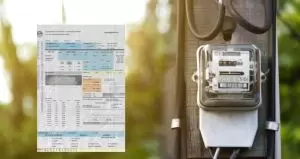
Last year, WAPDA graced us with the great news of installing new electricity meters. Previously, our homes had old meters, and railway authorities deducted the bills directly from salaries, though payments never reached WAPDA. To fix this, our new meters were proudly mounted on electric poles outside our homes—far from our reach but close enough to spin like a jet engine. Naturally, everyone became cautious with electricity usage.
A few days after installation, the usual 4:45 AM power outage struck. But this time, the electricity vanished for the entire day. No one was too alarmed because we had already endured 12-16 hours of load shedding for the past 15 years. Sometimes, it stretched to a full 12-hour blackout—a routine part of life.
Later, when my son went outside, we discovered that WAPDA had removed the meters from 30 houses in the colony. Three days and several frustrating visits to the WAPDA office later, we were informed that our meters were found “unsealed,” and thus, a fine ranging from Rs. 60,000 to Rs. 200,000 was imposed.
Also Read: Another Aviation Tragedy in the US: Plane Crash in Philadelphia Kills Six
We argued: "How can we be responsible for meters installed far away on poles? Who unsealed them? How would we even know?" But arguing with WAPDA, a government entity, is a losing battle. Their logic is simple: "If we say so, then it must be true." Those who dared to challenge them, pull strings, or exert influence ended up paying Rs. 175,000, while people like us, who had no choice but to comply, paid Rs. 58,000. Then came another decree: pay Rs. 7,000 for a new meter.
Imagine this: We paid our monthly bills, bought a new meter after just four months, continued paying a monthly meter rental fee, and paid a hefty fine on top of that. To add insult to injury, we also had to pay Rs. 500 to the WAPDA worker who reinstalled the meter—something that was already part of his job! And, of course, we received a final warning: "If anything happens to the meter again—if it breaks, is tampered with, or even gets opened—fines will be in the millions."
Now, what are we supposed to do? Should we hire a security guard to watch over our meter? Should we install CCTV cameras on the pole? The meters used to be inside our homes, safely locked away. Now, they are out in the open, at least 6,000-8,000 yards away, completely vulnerable to vandalism, theft, or WAPDA’s own mischief. If a cricket ball hits it, if someone deliberately damages it, or—as we suspect happened this time—WAPDA itself unseals the meters during an "inspection", we are the ones who suffer.
For an honest government employee, even managing household expenses on a fixed salary is a challenge. Suddenly being hit with an extra Rs. 65,000 expense at the end of the month is a financial nightmare. If we struggled to pay this extortion, imagine the plight of private-sector employees, daily wage earners, and laborers. How do they manage thousands in monthly bills plus hefty fines?
These four days without electricity were an eye-opener. For those of us who never lived in an electricity-free era, life without power felt impossible. We were lucky it was a weekend, or things would have been worse. Tasks as simple as ironing school uniforms, warming food in the microwave, boiling water for tea, running the water pump, using a computer for homework, checking school notifications on WhatsApp, charging phones, and keeping food fresh in the refrigerator—everything came to a halt.
Thanks to power banks, emergency lights, and gas cylinders, we barely managed, but it was a struggle.
Now, our only solution is to gradually switch everything to solar power to avoid falling into WAPDA’s extortion trap again. But who knows? Maybe one day, WAPDA will pull another trick, and our plan will go up in smoke. There's always the looming fear that solar panel prices will skyrocket, making them unaffordable. Or worse, the government might slap additional taxes and surcharges on solar power just to ensure that people never get a break.
Has something similar ever happened to you?